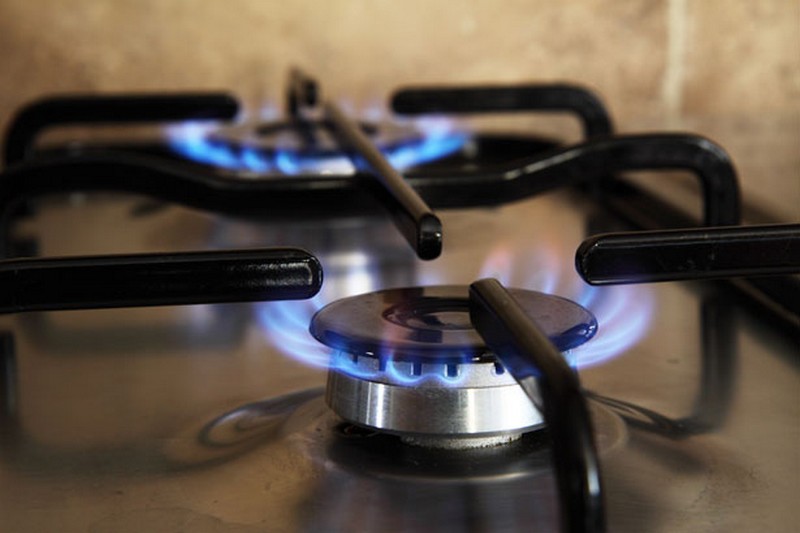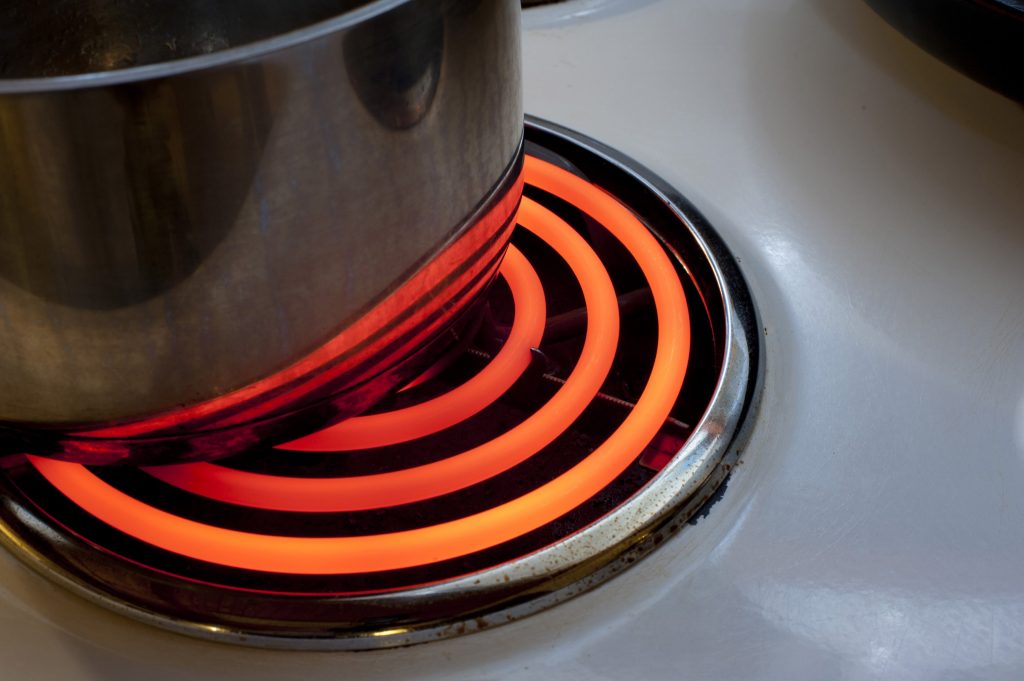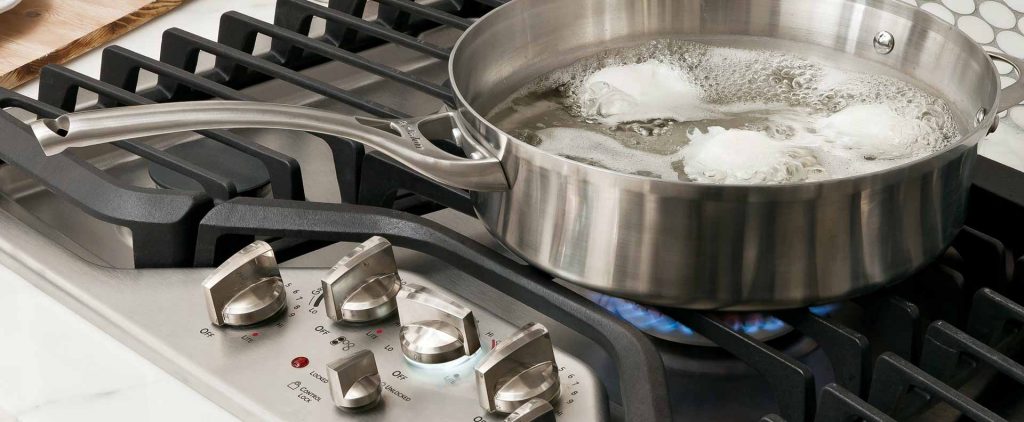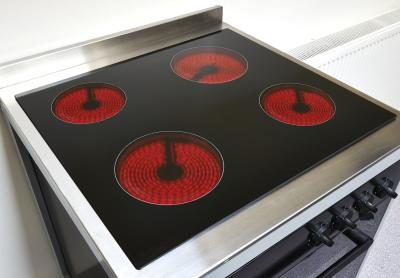A common question we get from clients when remodeling their kitchen is what type of stove they should get – gas or electric. What is the difference? Which one is better? Here are the basic differences between the two, and some pros and cons to help you decide which would be a better fit for you.
The Difference between Gas Stoves & Electric Stoves
Gas stoves use propane, butane, natural gas, liquefied petroleum gas or other flammable gas as fuel to create a flame for cooking. The gas enters your stove from the main gas supply to your house and mixes with air. As that gas-air mixture is released through holes in the burner, the ignition system lights, creating a blue flame. As you turn the burner control knob, you control exactly how much gas reaches the burner. The higher you turn it, the more gas is released.
In an electric stove, electricity runs through a wire inside the coil on the cooktop. Flat surface stoves work the same way, with an internal coil that sits underneath the cooking surface. When you turn the dial on the stove, the electricity flows to the coil and creates heat without the use of a flame. The more you turn the dial, the more electricity flows to the burner and the hotter it gets, turning the coil a bright orange color.
When it comes to cooking, the main difference between gas and electric stoves is how quickly they can change temperatures. Gas stoves respond nearly instantly, giving you more control when cooking certain dishes. Electric stoves do not respond as quickly and take longer to lower the temperature once the heat source is turned off.
There are also a few things a gas stove can do that an electric stove cannot, such as charring, toasting, and flambéing. If you really love to cook, the versatile uses of gas stoves may be more appealing than a basic electric stove.
Which Stove Saves More Energy?
It takes about three times as much energy to produce and deliver electricity to an electric stove, meaning a gas stove is significantly more energy efficient. According to the California Energy Commission, a gas stove will cost you less than half as much to use on a regular basis.
Gas vs. Electric Stoves: Pros & Cons of Each
Gas Stove Pros:
• Great cooking performance.
• Cheaper to operate / more energy efficient
• Reliable in the instance of a power outage
• Sealed burners are easy to clean
Gas Stove Cons:
• Higher price tag than electric stoves
• Can produce excess heat in small homes
• Potentially dangerous with the threat of open flames and gas leaks
• Require a more complex & expensive installation process
Electric Stove Pros:
• Provide even heating
• Easy to control
• Offer the option of a flat cooktop surface
• Generally more affordable than gas stoves
• Safer, no open flame
Electric Stove Cons:
• Less versatile performance than gas stoves
• Rely on electrical energy to function – won’t work in a power outage
• Slower cook time
• Coils can be difficult to clean
In the end, there’s no single answer for which stove type is better — there are pros and cons to both gas and electric stoves. Different homeowners will prefer different stoves based on their individual cooking level, budget, and personal experience. It helps to have basic knowledge of the two, and to research any questions you don’t know the answer to before making your decision. If you have additional questions or need assistance selecting the right stove as a part of updating your kitchen, please don’t hesitate to contact us! Our team of professional designers and product selectors can help you choose the right stove (and other appliances) to fit your needs!
Warm Regards,
The Medford Remodeling Team















